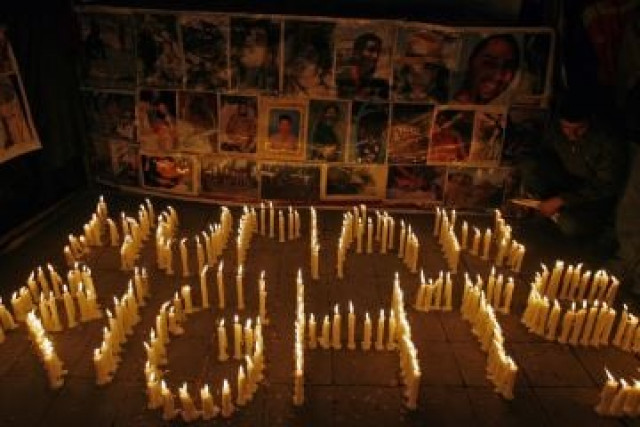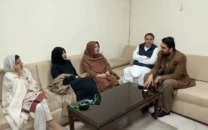Conference: ‘To address human rights issues, Pakistan needs to take serious steps’
Participants urged the government to implement the various UN treaties and conventions on human rights.

Pakistan needs to take serious steps instead of making tall claims on progress on human rights, said participants of a conference on Thursday.
They urged the government to implement the various UN treaties and conventions on human rights.
They were speaking at a conference organised by the National Commission for Justice and Peace (NCJP) to discuss ways in which Pakistan can use the human rights mechanisms of the UN to improve the country’s human rights standing.
Pakistan needs to be open to working with the international community and institutions to improve the situation, said Peter Jacob, executive director of the NCJP.
“We want to challenge the view that any international engagements regarding human rights are an intrusion to our sovereignty,” said Jacob.
He added that the idea of sovereignty as it was in the Middle Ages is no longer applicable in today’s world.
“We cannot live in isolation. We need to think of interdependence and co-operating with other countries and start treating humanity as one entity.”
Jacob was talking to The Express Tribune at the end of the conference.
The participants expressed the view that Pakistan has ratified and signed a lot of international treaties and conventions but it needs to follow-up by implementing those treaties through legislation and enforcement to effectively address human rights violations in the country.
Ayesha Aftab, who works for the Centre for Labour Empowerment and Social Development, said the human rights concerns in Pakistan include investigations of allegations of torture, freedom of religion, women’s and children’s rights, extra judicial killings and problems related to access to health and educational facilities.
She said Pakistan’s reporting on the International Covenant on Economic, Social and Cultural Rights (ICESCR) was delayed and Pakistan remains near the bottom on a range of crucial indicators including the Human Development Index in which Pakistan is ranked 145 among 183 countries.
Irfan Raza briefed the participants about the human rights mechanisms of the UN such as treaties, special procedures and treaty bodies. He said four high level delegations have visited Pakistan in 2012.
“We need to understand that the UN delegations on human rights are not against the country,” Raza said. “They are not inspectors, but facilitators.”
Some participants raised the concern that the current government’s emphasis was on civil and political rights rather than economic and social rights.
Member National Assembly Nafisa Shah said the civil rights and economic rights were “intertwined.”
“It’s a false dichotomy [between these two sets of rights],” she said. “For example, women rights are directly linked with the economic freedom of women.”
Shah said the current government has made a clear movement on the promotion of the rights agenda by making the rights to education, information and free trial a part of the constitution.
Jacob said the disconnect between the government’s ratification of international treaties and actual implementation of the same could be bridged if the government works closely and continuously with rights-based civil society organisations.
Published in The Express Tribune, October 19th, 2012.



















COMMENTS
Comments are moderated and generally will be posted if they are on-topic and not abusive.
For more information, please see our Comments FAQ